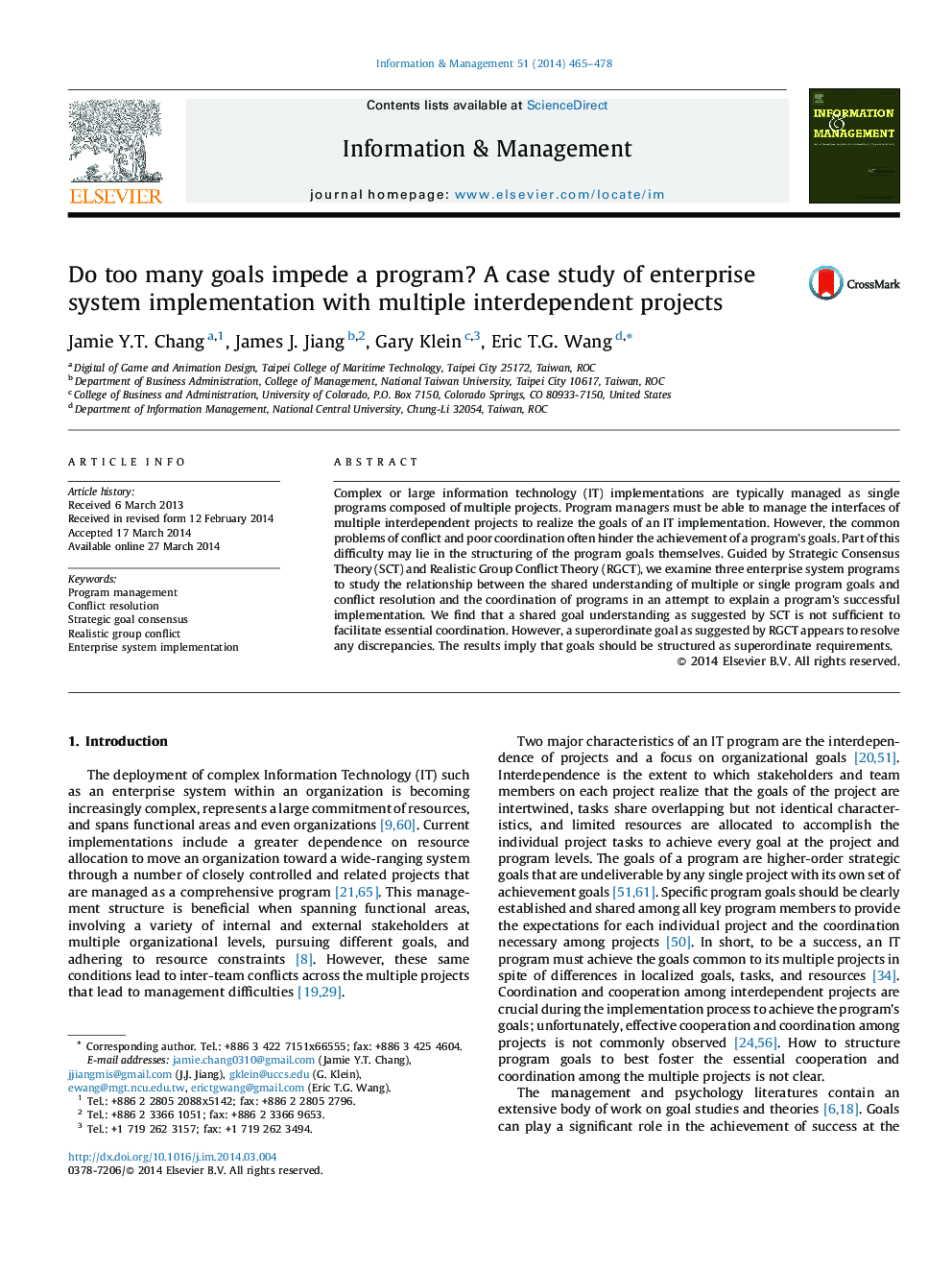| Article ID | Journal | Published Year | Pages | File Type |
|---|---|---|---|---|
| 553258 | Information & Management | 2014 | 14 Pages |
•A shared goal understanding in SCT is not sufficient to facilitate essential coordination.•The superordinate goal in RGCT does explain higher levels of coordination and cooperation necessary for system implementation.•An absence of perceived conflict between project goals and superordinate goals can promote commitment among project teams.
Complex or large information technology (IT) implementations are typically managed as single programs composed of multiple projects. Program managers must be able to manage the interfaces of multiple interdependent projects to realize the goals of an IT implementation. However, the common problems of conflict and poor coordination often hinder the achievement of a program's goals. Part of this difficulty may lie in the structuring of the program goals themselves. Guided by Strategic Consensus Theory (SCT) and Realistic Group Conflict Theory (RGCT), we examine three enterprise system programs to study the relationship between the shared understanding of multiple or single program goals and conflict resolution and the coordination of programs in an attempt to explain a program's successful implementation. We find that a shared goal understanding as suggested by SCT is not sufficient to facilitate essential coordination. However, a superordinate goal as suggested by RGCT appears to resolve any discrepancies. The results imply that goals should be structured as superordinate requirements.
